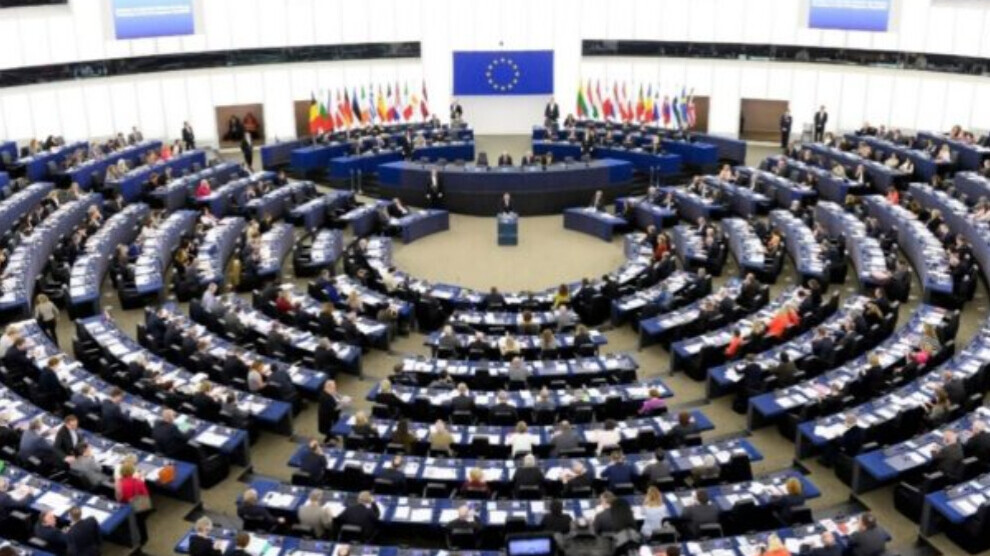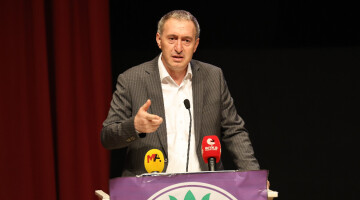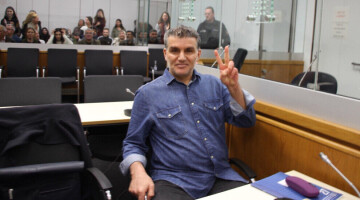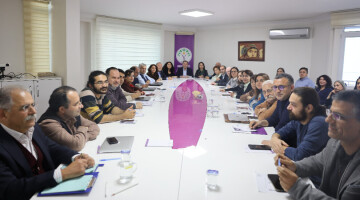The Council of Europe President Charles Michel and the European Commission President Ursula von der Leyen are visiting Ankara. The EU officials will reportedly debate over economic relations and financial support for refugees with Turkish President Recep Tayyip Erdogan.
A group of European Parliament members wrote a letter to Michel and Leyen and expressed their concern about the problems of the Erdoğan regime.
The letter reads as follows:
“We, the undersigned Members of the European Parliament, turn to you on the occasion of your meeting with the Turkish President Recep Tayyip Erdoğan, scheduled for the 6th of April. Notably, we would like to express our great concern about the multiple structural and political problems of Erdoğan’s regime, trusting that they will be seriously taken into account during your discussion.
Erdoğan’s New Turkey is an increasingly autocratic country that we struggle to acknowledge as a legitimate partner. The constant violations of human rights in Afrin since 2018, with the Human Rights Organisation of Afrin counting 303 children and 213 women injured in the Turkish-affiliated armed groups’ attacks, are only an example of the anti-democratic course that the government has taken over the years. For the sake of simplicity, we have identified three major issues of concern.
The first is related to the more and more evident democratic shortcomings resulting in an alarming control over Parliament and opposition.
On March the 17th, the Prosecutor General of the Court of Cassation initiated closure proceedings against the Peoples’ Democratic Party (HDP) by referring the case to the Constitutional Court.
On the same day, the mandate of HDP deputy Ömer Faruk Gergerlioğlu was revoked, together with it his immunity. The legal basis for Gergerlioğlu’s charge of “terrorist propaganda” is a 2016 tweet accusing the judge’s decision of being politically motivated.
At the moment there are tens of thousands of political prisoners, and among them four thousand HDP members including deputies, mayors and officials.
A second fundamental cause for concern is university and its independence.
Since 2018, Recep Tayyip Erdoğan has been deciding solo on all high-level appointments in universities.
Bosphorus (Bogazici) University, one of Turkey’s leading institution, usually elects its deans through its own ranks. However, in early January 2021, Erdoğan appointed AKP’s Melih Bulu the new university dean, as his own «trustee». Protests against Melih Bulu were violently suppressed, and over 500 students were arrested with no official figures on how many were then imprisoned. Universities are losing their universal perspective and are becoming a place for promoting a Turkish- Islamic-conservative worldview.
Finally, we must emphasise how the New Turkey is not only hostile to Kurds, Armenians, non- Muslims, dissenters, women and democracy itself: it is also a patriarchal and homophobic society, inherently hostile to the former Leitzist-Turkish nationalism.
Women and women’s organizations advocating for equality have been systematically criminalised and imprisoned.
The withdrawal of Turkey from the so-called Istanbul Convention, which is intended to prevent violence against women and domestic violence through binding legal standards, is an issue of concern for both women and the LGBTQI+ community, as it was announced by Erdoğan under the guise that it was being used «to normalise homosexuality».
We hope that these issues will be considered and addressed during your meeting with President Erdoğan.”
SIGNATORIES
Massimiliano SMERIGLIO (MEP, S&D)
Attila ARA-KOVÁCS (MEP, S&D)
Maria ARENA (MEP, S&D)
Kostas ARVANITIS (MEP, GUE/NGL)
Pernando BARRENA ARZA (MEP, GUE/NGL)
Pietro BARTOLO (MEP, S&D)
Brando BENIFEI (MEP, S&D)
Fabio Massimo CASTALDO (MEP, NA)
Andrea COZZOLINO (MEP, S&D)
Rosa D’AMATO (MEP, Greens/EFA)
Özlem DEMIREL (MEP, GUE/NGL)
Eleonora EVI (MEP, Greens/EFA)
Giuseppe FERRANDINO (MEP, S&D)
Alexis GEORGOULIS (MEP, GUE/NGL)
Elisabetta GUALMINI (MEP, S&D)
Evin INCIR (MEP, S&D)
Eva KAILI (MEP, S&D)
Pierfrancesco MAJORINO (MEP, S&D)
Margarida MARQUES (MEP, S&D)
Costas MAVRIDES (MEP, S&D)
Martina MICHELS (MEP, GUE/NGL)
Alessandra MORETTI (MEP, S&D)
Demetris PAPADAKIS (MEP, S&D)
Dimitrios PAPADIMOULIS (MEP, GUE/NGL)
Giuliano PISAPIA (MEP, S&D)
Franco ROBERTI (MEP, S&D)
María Eugenia RODRÍGUEZ PALOP (MEP, GUE/NGL) Irene TINAGLI (MEP, S&D)
Patrizia TOIA (MEP, S&D)
Miguel URBÁN CRESPO (MEP, GUE/NGL)












